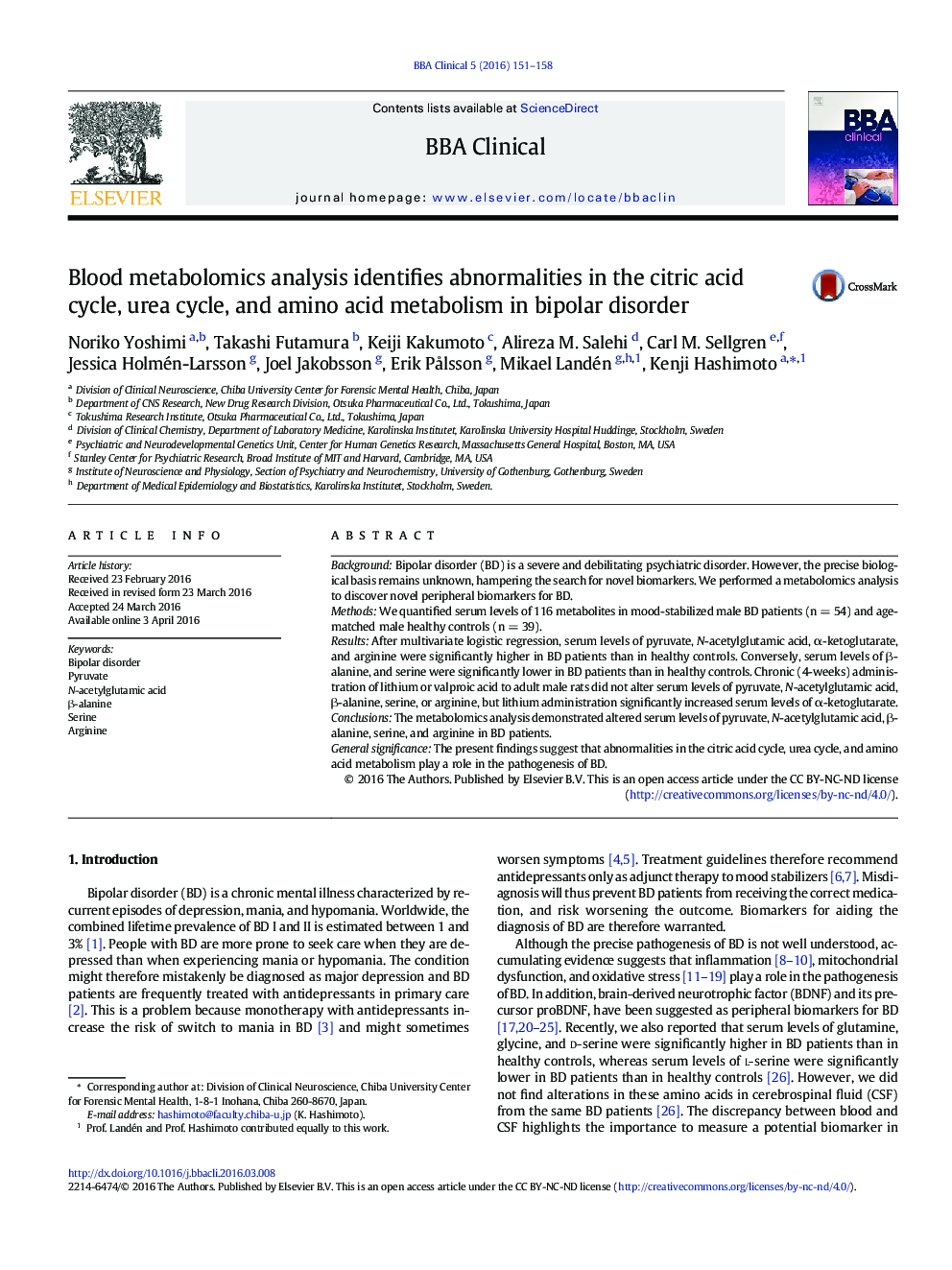| Article ID | Journal | Published Year | Pages | File Type |
|---|---|---|---|---|
| 2773100 | BBA Clinical | 2016 | 8 Pages |
•Metabolomics analysis of serum sample from bipolar disorder (BD) was performed.•Pyruvate, N-acetylglutamic acid, α-ketoglutarate, and arginine were higher in BD.•β-alanine, and serine were lower in BD patients.•Abnormalities in citric acid cycle, urea cycle, and amino acid metabolism in BD.
BackgroundBipolar disorder (BD) is a severe and debilitating psychiatric disorder. However, the precise biological basis remains unknown, hampering the search for novel biomarkers. We performed a metabolomics analysis to discover novel peripheral biomarkers for BD.MethodsWe quantified serum levels of 116 metabolites in mood-stabilized male BD patients (n = 54) and age-matched male healthy controls (n = 39).ResultsAfter multivariate logistic regression, serum levels of pyruvate, N-acetylglutamic acid, α-ketoglutarate, and arginine were significantly higher in BD patients than in healthy controls. Conversely, serum levels of β-alanine, and serine were significantly lower in BD patients than in healthy controls. Chronic (4-weeks) administration of lithium or valproic acid to adult male rats did not alter serum levels of pyruvate, N-acetylglutamic acid, β-alanine, serine, or arginine, but lithium administration significantly increased serum levels of α-ketoglutarate.ConclusionsThe metabolomics analysis demonstrated altered serum levels of pyruvate, N-acetylglutamic acid, β-alanine, serine, and arginine in BD patients.General significanceThe present findings suggest that abnormalities in the citric acid cycle, urea cycle, and amino acid metabolism play a role in the pathogenesis of BD.
